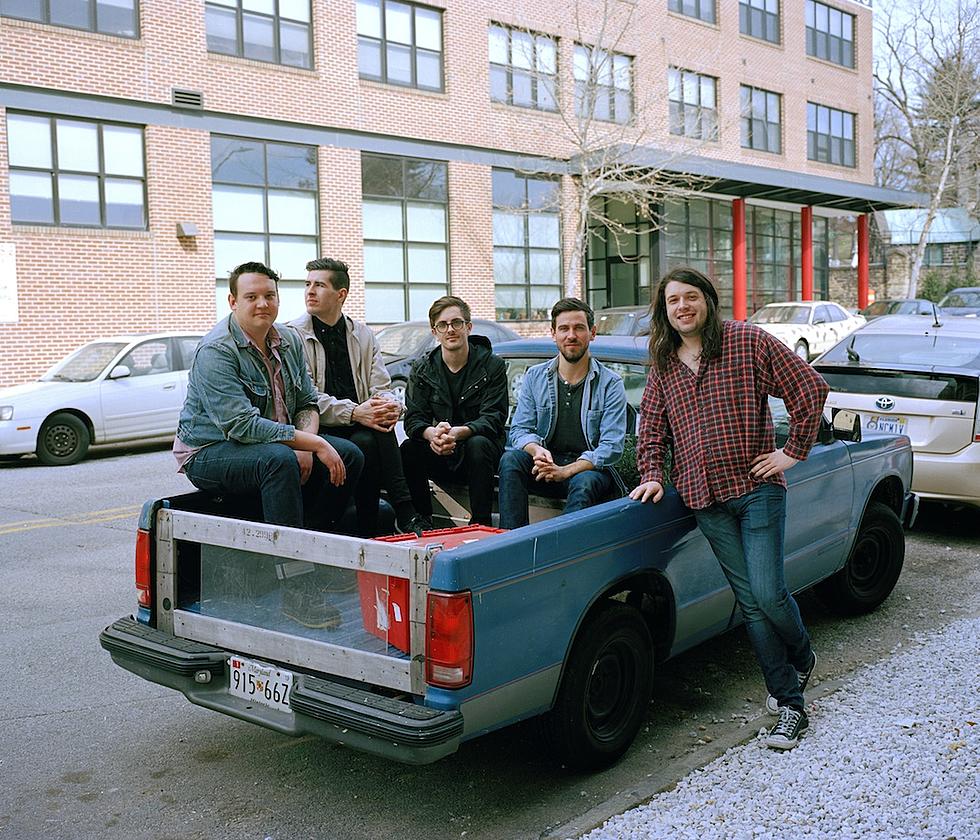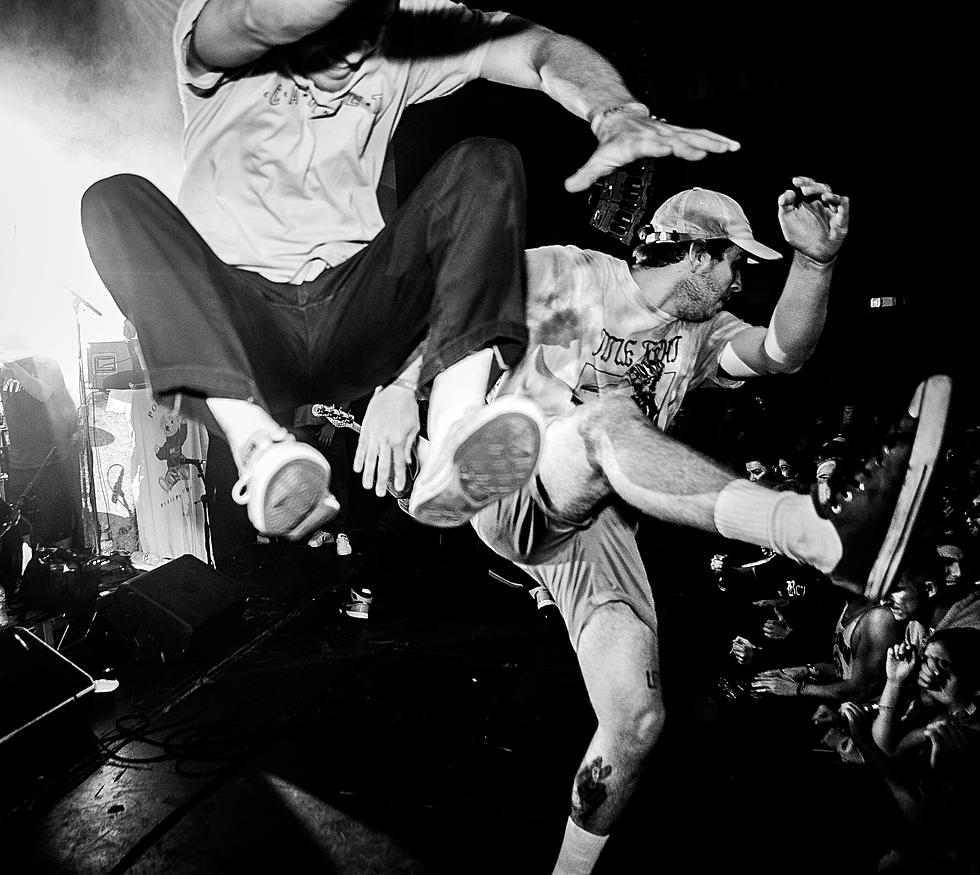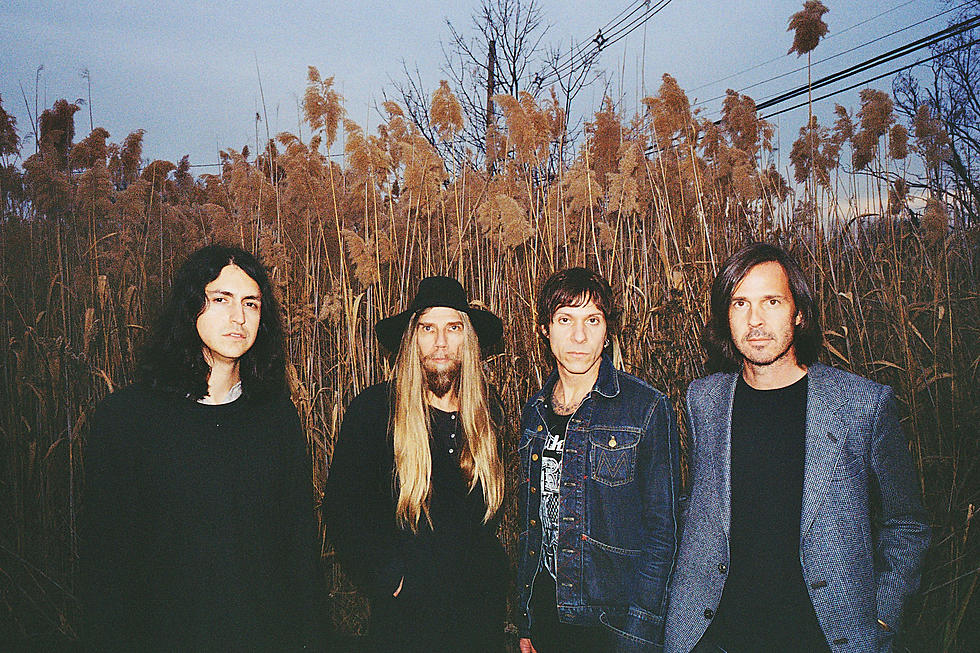
Hear Austin Punks Xetas’ ‘Unwitting Concept Album’ About Trump’s America
Are Xetas the best band in the world? Reasonable people can disagree. But if punk rock music — that correctly maligned genre of retreads and future Republicans — has given us one thing, it’s the idea that all that can possibly matter at any given time is how a song makes one feel at a singular moment, past and future be damned. By this logic, sure, Xetas — with their short, sharp songs of refusal and desire — are the best band in the world. When the song ends, someone else maybe gets to be the best, but that’s later and we may be dead or in grad school by then, so fuck it — Xetas rule.
Xetas are a rock band from Austin, Texas. The band consists of Kana (from Austin) on vocals and bass, David (from Columbus, Indiana: “Nowhere, pretty much”) on vocals and guitars, and Jay (from Houston) on drums. Jay and Kana work at beloved mom 'n' pop Waterloo Records, and David works at Beerland, the only bearable venue during SXSW. They don’t use their last names because last names are for cops.
The band plays a style of emotive punk rock that can easily be underappreciated, if one isn’t paying attention. At lazy first glance, it’s the drive and gravel vocals of any number of Blitz-indebted Motör-punk bands that stands out. They do this real well, and embrace their love of Hüsker Dü and U.K.-based Lemmy-for-romantics punkers, Leatherface. But if proper attention is paid, the squirrelly guitars and off-kilter bass lines gain prominence to the listener. New drummer Jay is as much a storyteller, in the Kevin Haskins vein, as primal thudder. Northwest gloom-punk dances with '90s San Diego art-garage, while Kana and David trade vocal lines to provide conversations as anthems over all the clang and clamor. There’s meat and there’s potatoes galore for sure, but there’s also, as the kids say, levels.
Kana says it well: “It’s a blend of heavy rock 'n' roll … there’s not even so much ‘roll’ to it as there is ‘rocking,’ being influenced by Touch & Go and SST.”
“When we were first started, it felt like we were the only band in town playing this kind of music; not quite hardcore punk, but not indie or garage rock,” David adds. “We just always listened to Leatherface, Hüsker Dü [and] the Wipers, but also Kate Bush and Peter Gabriel.”
“Pylon is one of my favorite bands,” Kate notes. She will also go on to mention Mecca Normal, Beat Happening and the fact that she has a full arm tattoo of the art for Kate Bush’s Never For Ever.
“I’m wearing a Big Country T-shirt right now,” David chimes in. “A punk band can do whatever they want … that’s why they’re a punk band.”
Formed in January 2014 from the ashes of the various members’ respective post-punk bands, Xetas (with original drummer “Matt”), quickly put out a 7” and debut album, The Redeemer. Their first recordings, while perfectly compelling, were clearly the sound of a band finding its footing. They stand by the records, but David says (after some prodding), “We recorded that first record when we’d only been playing shows for two months. We weren’t sure what the dynamic would be, what kind of band we’d be.”
I’m on the phone with him and Kana, trying to put into words — without running down the first album — why their new album, the forthcoming The Tower, is such a radical improvement. David gives me this: “[The Tower] is exactly who we are as a band.” Unlike the first record, the band had time to workshop the songs on The Tower over numerous shows, giving them time to breathe and tighten as necessary. While certain songs on The Redeemer have the feel of a bunch of really sick parts attached to each other, the songs on The Tower feel cohesive and flowing, without losing any of the immediacy of a proper hardcore freak-out.
“We are very tight, and we hang out a lot and practice once a week, rain or shine,” Kana says. “So, when you’re all connected in your lives, it’s really natural for your ideas to match up and express what you’re feeling together generally. Then it’s a game of piecing it together. Part of that is just smoking a lot of weed and being like, ‘Oh man, what if this is about this and … ’ There’s stuff going on in the world and our lives and the scene, and we talk about it and write songs and play music, and some of it is going to come out.”
The obvious unifying aspect of The Tower is the tarot conceit. Each song is named after a card in the deck. The “Tower” card and album cover is designed to look like Trump Tower. The album was written before the Rot-Grub-in-Chief was elected, but his ascendance was enough to inform the record. David says, “We didn’t know that he’d win, but it was enough that he was in the running. It was like science fiction. We’ve unwittingly written a concept album about Trump’s America.” So, on one level, the record is a prescient drawing from the deck on what happens when a country really embraces its true self, more grist for the interminable “will Trump make punk great” debate. But The Tower, keeping in Xetas’ stated aims to keep things “of their time, but timeless,” is also about psychological and existential dissolution / evolution. (Kana precedes that statement with, “Watching this happen and feeling helpless ... the only way to express that discontent is by critiquing the systems around us, and that comes through in our lyrics, but it’s not really ‘Fuck Reagan!’ We’re not trying to date or genderize it.”)
“We chose the Tower tarot card for the cover / title theme is because The Tower represents a sudden upheaval / change — it can be good or bad, but it usually just means everything is different. I broke my finger off in a door right before the first record came out, Matt quit the band, David's grandfather (his father figure) passed away, and we were all dealing with a lot of change and upheaval while the record was being made, with the local scene and national / global-scale problems also mixed in. So, The Tower represents the change, and the songs all work around dealing with change, whether it's instigating, dealing with, accepting, etc.”
Talking to Xetas, they constantly returned to the idealism and ethics that sustain them. Being neither idealistic nor particularly interested in hard work, I fear I gave those aspects short shrift here. So, let it be known that Xetas work hard, make their own merch, raise money for local schools, book their own fucking lives. All that one would hope from a band that sites Dischord and K Records as living influences. The band was unfailingly earnest in such a way that only served to give shine to what they’ve already accomplished with The Tower (streaming here now, and available from 12XU on April 14): 10 songs of Jehu-driven bad and hopeful vibes, songs of surprising darkness and depth, from their good intentions to your hopefully not too jaded ears.
More From CLRVYNT









